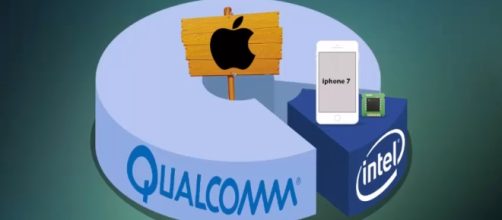The legal dispute between Apple and Qualcomm began when the former filed a lawsuit against the Qualcomm due to an alleged discrepancy in licensing fees. Apple contends that Qualcomm is taking advantage of its market position to overprice and overcharge the fees they pay to use the chip maker's patented technology in iPhones. Since then, Apple has ceased in paying licensing fees. In turn, Qualcomm countersued Apple and requested the United States International Trade Commission (ITC) to ban the import of iPhones that use Intel modem chips.
Tech giants rally behind Apple
Unfortunately for Qualcomm, Apple has won the support of its Silicon Valley neighbors. According to the Computer and Communications Industry Association (CCIA), a number of well-known companies have filed a petition with the US ITC to dismiss Qualcomm's import ban. This includes Google, Amazon, Facebook, Microsoft, Samsung, Netflix, and Intel.
These companies share the same sentiment that Qualcomm's demand has become unreasonable and anti-competitive. It does not seem to realize the implication of the ban on both the supply and more importantly, the consumers. There is no upside in such a course of action unless one would consider a monopoly of power to leverage against Apple and further increase their prices.
According to reports, Qualcomm has been accused of anti-competitive practices before. In fact, the Federal Trade Commission (FTC) filed charges against the company for allegedly threatening to cut the supply for smartphone manufacturers that would not subscribe to the new and increased royalty fees.
Many people believe that Qualcomm is taking advantage of its presence and dominance in building pressure among competitors.
Their motion to file unbelievably high taxes in products under direct competition definitely takes a toll on its partner relations.
Intel pushes back
Qualcomm's competitor Intel affirms these statements and is sure that it is a tactic designed to drive out the competitors from the modem market. According to Intel, Qualcomm's lawsuit is another twisted use of bending the process.
Echoing the concerns of the tech group, Intel believes that if the result favors Qualcomm, it will only benefit them and eventually will hurt the consumers. For Intel, the public interest should be the most vital consideration in this whole commotion. The ban would mean that iPhones in the US will significantly increase the price and "stifle future innovation."
Apple began a partnership with Intel last year after deciding to employ the latter to provide the cellular modems for some versions of their iPhone 7. Prior to that, Apple and Qualcomm have had a long standing working relationship. However, with the persisting changes in Qualcomm's policies and demands, the tech giant has pulled back.
Reports say that the dispute has taken a dent on the financial portfolio of Qualcomm with their third quarter net income dropping by 40% by the year. With these big companies backing Apple, many people are curious and eager to see Qualcomm's next move.


